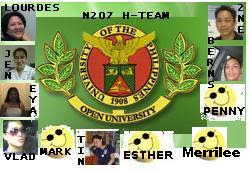
Madeleine M. Leininger
PhD, LHD, DS, CTN, RN, FAAN, FRCNA
Madeleine Leininger was born in Sutton, Nebraska.
1948, she received her diploma in nursing from St. Anthony’s School of Nursing in Denver, Colorado.
1950, she earned a B.S. from St. Scholastica (Benedictine College) in Atchison, Kansas, in 1954 earned an M.S. in psychiatric and mental health nursing from the Catholic University of America in Washington, D.C.
1965, she was awarded a Ph.D. in cultural and social anthropology from the University of Washington, Seattle
1966, she offered first course in transultural nursing at the University of Colorado
1969, she was appointed dean of the University of Washington, School of Nursing, she remained in that position until 1974
She is considered by some to be the "Margaret Mead of nursing" and is recognized worldwide as the founder of transcultural nursing, a program that she created at the School in 1974.
She has written or edited 27 books and founded the Journal of Transcultural Nursing to support the research of the Transcultural Nursing Society, which she started in 1974.
1985 her theory was published in Nursing Science Quarterly
1991, her book Culture Care Diversity and Universality: A theory of Nursing was published
MADELEINE LEININGER’S CULTURE CARE:
DIVERSITY AND UNIVERSALITY THEORY
Early in her career as a nurse, Leininger recognized the importance of the concept of “caring” in nursing. Frequent statements of appreciation from patients for care received prompted Leininger to focus on “care” as being a central component of nursing. During the 1950s, while working in a child guidance home, Leininger experienced what she describes as a cultural shock when she realized that recurrent behavioral patterns in children appeared to have a cultural basis. Leininger identified a lack of cultural and care knowledge as the missing link to nursing’s understanding of the many variations required in patient care to support compliance, healing, and wellness (George, 2002).
These insights were the beginnings (in the 1950s) of a new construct and phenomenon
related to nursing care called transcultural nursing.
Leininger is the founder of the transcultural nursing movement in education research and practice. In 1995, Leininger defined transcultural nursing as:
'a substantive area of study and practice focused on comparative cultural care (caring) values, beliefs, and practices of individuals or groups of similar or
different cultures with the goal of providing culture-specific and universal nursing care practices in promoting health or well-being or to help people to face unfavorable human conditions, illness, or death in culturally meaningful ways'
The practice of transcultural nursing addresses the cultural dynamics that influence the nurse–client relationship. Because of its focus on this specific aspect of nursing, a theory was needed to study and explain outcomes of this type of care. Leininger creatively developed the Theory of Culture Care: Diversity and Universality with the goal to provide culturally congruent holistic care.
Some scholars might place this theory in the middle range classification. Leininger holds that it is not a grand theory because it has particular dimensions to assess for a total picture. It is a wholistic and comprehensive approach, which has led to broader nursing practice applications than is traditionally expected with a middle-range, reductionist approach. (Personal communication with Penny Glynn on September 12, 2003).
Leininger’s theory is to provide care measures that are in harmony with an individual or group’s cultural beliefs, practices, and values. In the 1960’s she coined the term culturally congruent care, which is the primary goal of transcultural nursing practice.m Culturally congruent care is possible when the following occurs within the nurse-client relationship (Leininger, 1981):
'Together the nurse and the client creatively design a new or different care lifestyle for the health or well-being of the client. This mode requires the use of both generic and professional knowledge and ways to fit such diverse ideas into nursing care actions and goals. Care knowledge and skill are often repatterned for the best interest of the clients…Thus all care modalities require coparticipation of the nurse and clients (consumer) working together to identify, plan, implement, and evaluate each caring mode for culturally congruent nursing care. These modes can stimulate nurses to design nursing actions and decisions using new knowledge and culturally based ways to provide meaningful and satisfying holistic care to individuals, groups or institutions'

